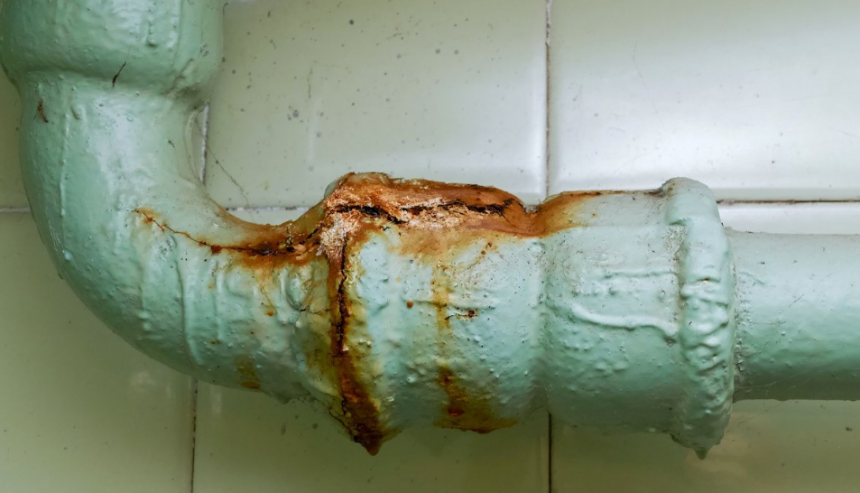Welcome to our latest guide on How to Get Rid of Septic Smell which is one of the most unpleasant issues a homeowner can face. Few things disrupt the comfort of home quite like the unmistakable odor of a septic system gone awry. Whether it’s a faint lingering scent or a full-blown assault on the senses, dealing with a septic smell in your house is a pressing matter that demands swift action.
In this comprehensive blog post, we’re diving deep into the world of septic systems, exploring the common causes behind those unwelcome odors, and, most importantly, providing you with a range of effective solutions to banish them for good. From simple DIY remedies to professional interventions, we’ve got you covered.
So, if you’re tired of holding your breath every time you step through the door, join us as we embark on a journey to restore freshness and tranquility to your home. Let’s bid farewell to that pesky septic smell together!
Common Causes of Sewer Gas Smell
The lingering stench of sewer gas permeating your home can be both frustrating and concerning. Understanding the common culprits behind this unpleasant odor is the first step toward finding relief. Here are some of the most prevalent causes of sewer gas smells in your house:
- Dried-out P-traps: P-traps are U-shaped pipes installed beneath sinks, showers, and floor drains. They hold a small amount of water, which acts as a barrier to prevent sewer gases from wafting back into your home. If a drain is infrequently used or has been left unused for an extended period, the water in the P-trap can evaporate, allowing sewer gases to infiltrate the living space.
- Blocked Vent Pipes: Vent pipes are an integral part of your plumbing system, allowing sewer gases to escape safely to the outdoors. When these vent pipes become obstructed by debris, leaves, or even nesting animals, the resulting blockage can cause sewer gas to back up into your home.
- Faulty Wax Seals: The wax seals located between your toilet and the floor, as well as around the base of other fixtures like sinks and showers, create a watertight barrier. Over time, these seals can degrade or become damaged, allowing sewer gas to seep into your home.
- Cracked or Damaged Pipes: Cracks, fractures, or deterioration in your plumbing pipes can create pathways for sewer gas to enter your home. This is particularly common in older homes with aging plumbing systems or properties that have experienced ground shifts or settling.
- Septic System Issues: If you rely on a septic system, malfunctions such as a full tank, clogged drain field, or damaged components can lead to the release of foul odors. In severe cases, sewage backups may occur, exacerbating the problem.
- Blocked Drains: Blockages in your drains can cause water to stagnate, leading to unpleasant odors emanating from sinks, showers, or floor drains.
- Improperly Installed Plumbing Fixtures: Incorrect installation of plumbing fixtures, such as toilets or sinks, can create gaps or leaks that allow sewer gas to escape into your home.
- Dry Traps in Unused Spaces: Unused bathrooms, laundry rooms, or basement floor drains can develop dry traps if not periodically flushed with water. This absence of water in the P-trap can facilitate the entry of sewer gas.
How to Get Rid of Septic Smell from Your Home
Banishing the offensive odor of sewer gas from your home requires a systematic approach that addresses the root cause of the problem. Here’s a step-by-step guide to help you eliminate sewer gas smells and restore a pleasant atmosphere to your living space:
- Identify the Source: Begin by pinpointing the source of the sewer gas smell. Inspect all drains, toilets, and plumbing fixtures for signs of leaks, cracks, or blockages. Pay attention to areas where the odor is most potent.
- Check P-Traps: Ensure that all P-traps in your home have water in them. If a drain is infrequently used, run water through it to refill the P-trap and create a barrier against sewer gas.
- Inspect Vent Pipes: Examine the vent pipes on your roof for any obstructions or damage. Clear away debris such as leaves, bird nests, or other blockages that may be impeding airflow.
- Test Wax Seals: Check the wax seals around the base of toilets and plumbing fixtures for signs of deterioration or damage. Replace any compromised seals to prevent sewer gas from escaping.
- Repair Plumbing Leaks: Address any leaks or damaged pipes in your plumbing system promptly. Tighten connections, replace worn-out seals, or enlist the help of a professional plumber for more extensive repairs.
- Flush Drains: Pour hot water down drains that are emitting sewer gas to help flush out any debris or buildup causing the odor. Follow up with a mixture of baking soda and vinegar to further clean and deodorize the pipes.
- Inspect the Septic System: If you have a septic system, schedule a professional inspection to assess its condition. Address any issues such as a full tank, clogged drain field, or damaged components that may be contributing to the odor.
- Use Odor Neutralizers: Employ natural odor-neutralizing solutions such as activated charcoal, baking soda, or white vinegar to absorb and neutralize foul odors in your home. Place bowls of these substances near affected areas or use them to clean surfaces.
- Ventilate the Area: Increase ventilation in your home by opening windows and using exhaust fans to help disperse the sewer gas odor. Fresh air circulation can help alleviate the smell and improve indoor air quality.
- Consider Professional Help: If you’re unable to identify or resolve the source of the sewer gas smell on your own, don’t hesitate to seek assistance from a qualified plumber or septic system technician. They can conduct a thorough inspection and implement effective solutions to eliminate the odor.
Why Fixing the Smell Quickly Is Important
fixing the smell of sewer gas in your home quickly is essential for protecting your health, preserving your comfort, preventing further damage, and maintaining a pleasant living environment for you and your family. By addressing the problem promptly and effectively, you can enjoy peace of mind knowing that your home is free from unpleasant odors and potential hazards.
Why does my house smell like poop all of a sudden
If your house suddenly smells like poop or sewage, it can be alarming and unpleasant. Here are some potential reasons for the sudden odor:
- Dry P-Trap: As mentioned earlier, the P-trap under sinks, showers, and floor drains can dry out if not used regularly. This allows sewer gases to enter your home.
- Blocked Vent Pipe: Vent pipes on your roof may become obstructed, preventing sewer gases from escaping and causing them to back up into your home.
- Leaking or Damaged Pipes: Cracks, leaks, or damage in your plumbing system can release sewage odors into your home.
- Faulty Wax Seals: Wax seals around toilets and plumbing fixtures can deteriorate over time, allowing sewer gases to seep into your home.
- Septic System Issues: Problems with your septic tank or drain field can cause sewage odors to emanate from your plumbing system.
Sewage Smell in house who to call
If you’re experiencing a sudden sewage smell in your house, it’s essential to address the issue promptly.
Call PuroClean Emergency Recovery Services New Jersey on (877) 750-7876 for Sewage cleaning:
By contacting the appropriate professionals, you can address the sudden sewage smell in your house and ensure the health and safety of your home and family.




 PuroClean Emergency Recovery Services
PuroClean Emergency Recovery Services